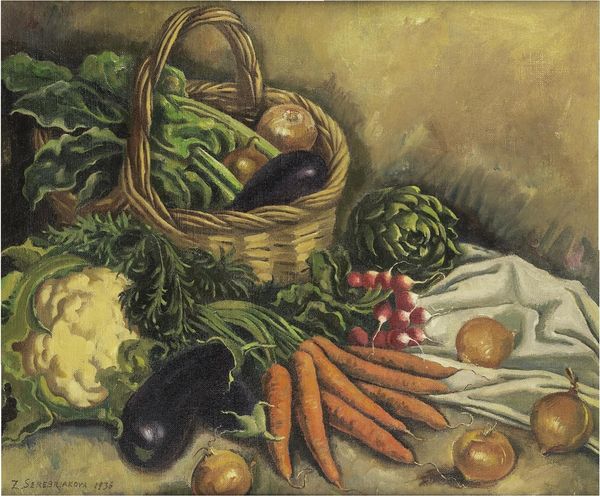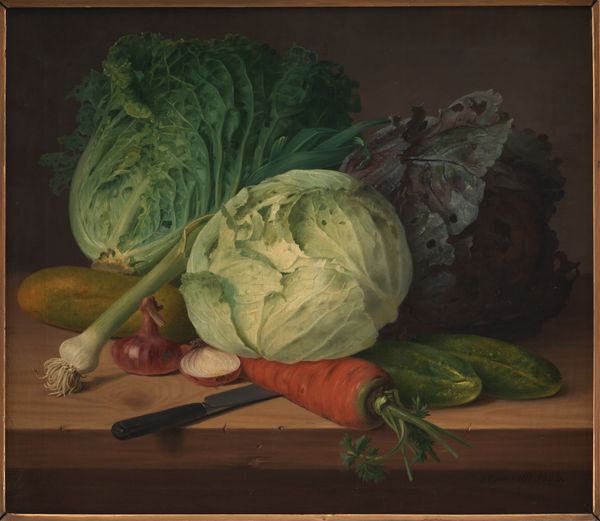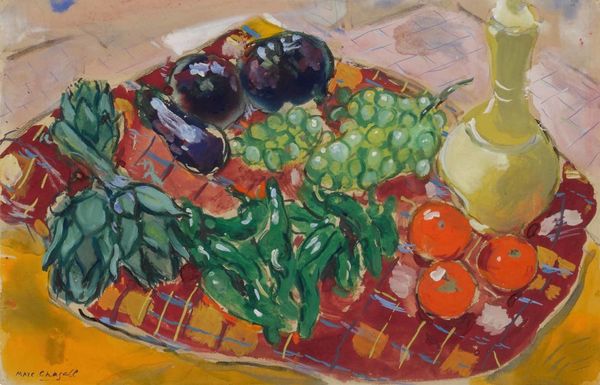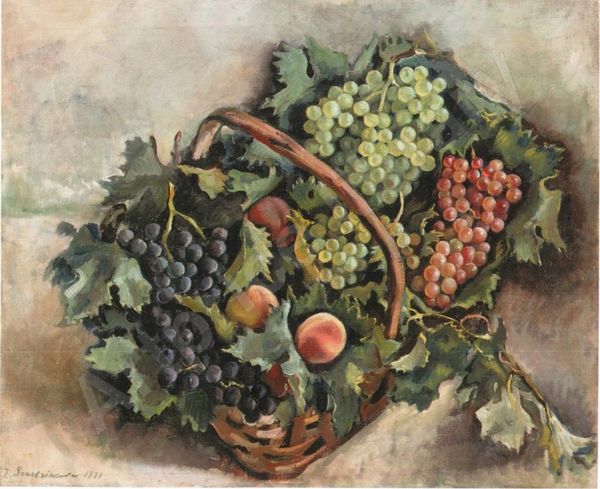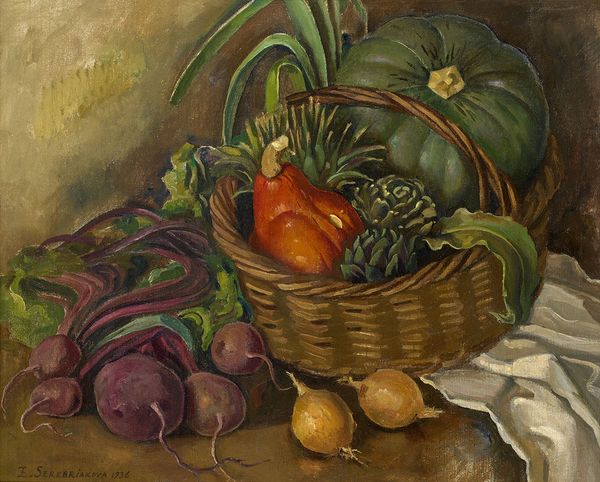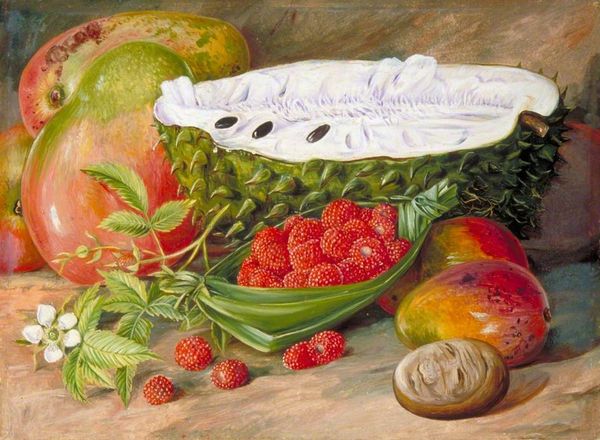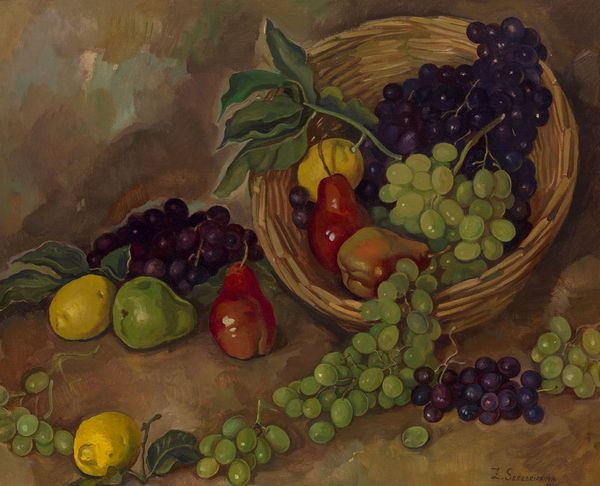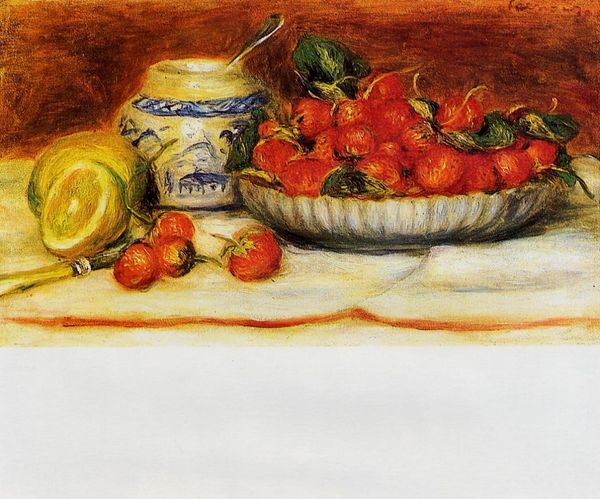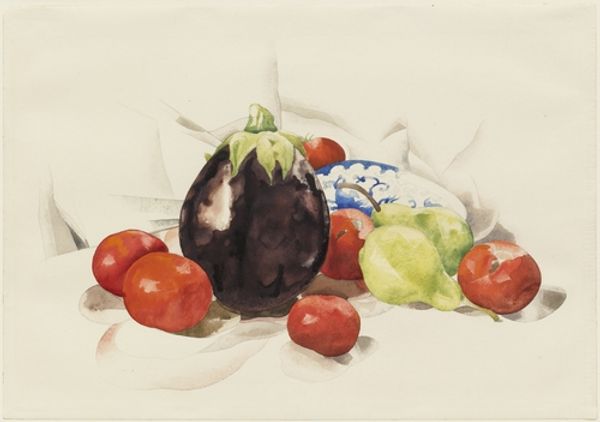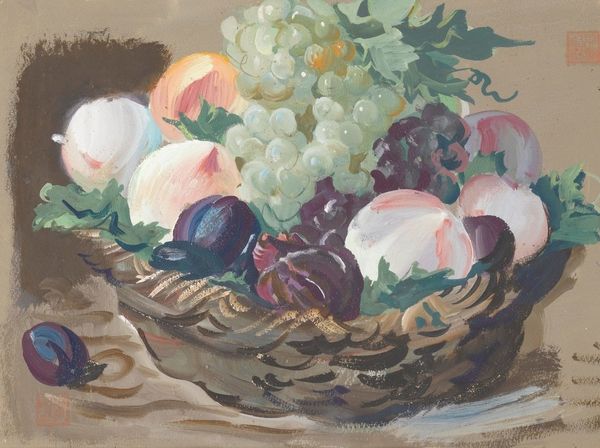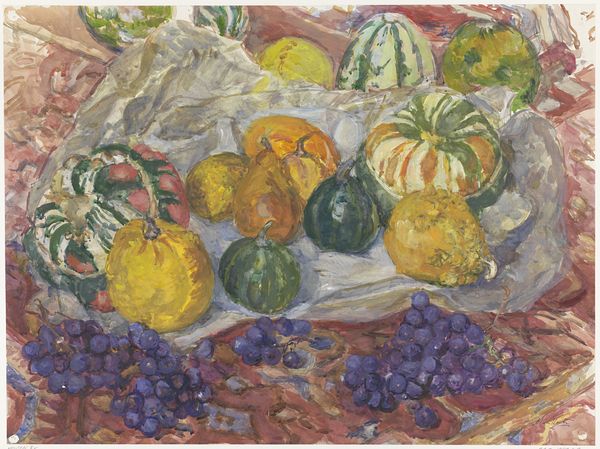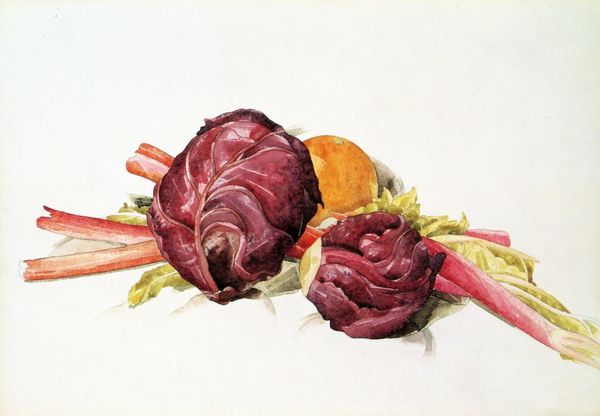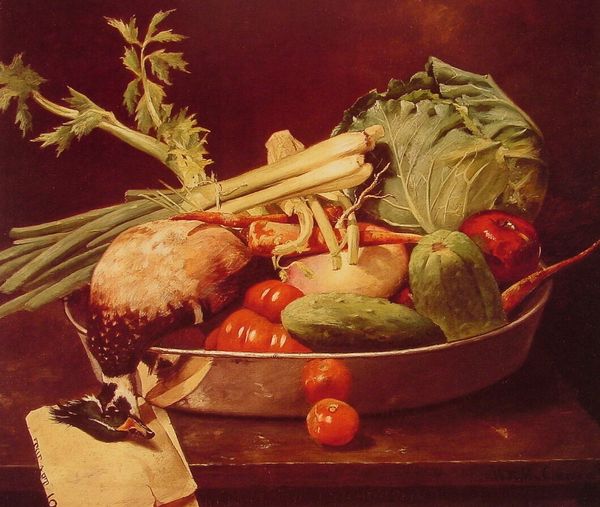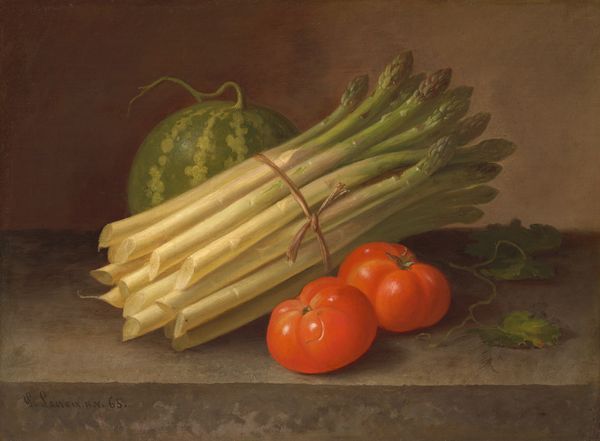
oil-paint
#
oil-paint
#
oil painting
#
realism
Copyright: Avigdor Arikha,Fair Use
Curator: Avigdor Arikha’s painting "Chinese Vegetables," a modest oil on canvas, depicts just that: an assortment of uncooked Chinese vegetables laid out on what appears to be a table or counter. Editor: My first impression is one of simplicity. The vegetables are arranged almost haphazardly. The lighting emphasizes their individual textures and shapes. I find a peculiar sense of quietness about this piece. Curator: Given Arikha's background, specifically his experiences during the Holocaust and his later commitment to art that directly confronts reality, do you find the ordinary subject matter of the vegetables a purposeful decision to emphasize resilience of everyday life against the backdrop of historical trauma? Editor: An interesting thought. On the one hand, this painting is a rather straightforward representation, perhaps a study in form and light. Look how the brushstrokes follow the contours of each vegetable, carefully capturing the subtle shifts in color and shadow. He has clearly set up the composition so the tonal variations bring volume to simple shapes. The lettuce is more in focus at the bottom than are the cucumber or aubergine near the top of the plane. Curator: And isn't there something inherently political in choosing such humble subject matter? By portraying "Chinese Vegetables," might he be highlighting the cross-cultural connections, while subtly alluding to the experiences of displaced persons and their struggles to secure a place to belong, not least by referencing cultural fusion of cookery? Editor: Perhaps you read a little too much into the identity politics. This piece evokes in me something very primary in the experience of seeing. The visual pleasure afforded by simple form in simple combinations with direct access to rendering the play of shadow in this simple collection creates in me almost an erotic feeling that would likely contradict a politically-minded art theory. The forms alone can stand on their own. Curator: The question is whether an ostensibly simple presentation, with its direct unvarnished rendering, conceals layers of symbolism or perhaps subtle critiques of contemporary consumption and the globalization of food? Do you believe the vegetables may subtly point to contemporary cultural landscapes, especially those connected with international conflict? Editor: Maybe. I’m more drawn to the masterful way he employs the oil paint to describe form and light; in a sense his devotion to the real without further subjective comment makes this more appealing. Curator: I see what you mean. It also offers me insight into social relations and how we think about cultural assimilation. Editor: And for me, the artist delivers an almost understated brilliance by just observing these objects.
Comments
No comments
Be the first to comment and join the conversation on the ultimate creative platform.
